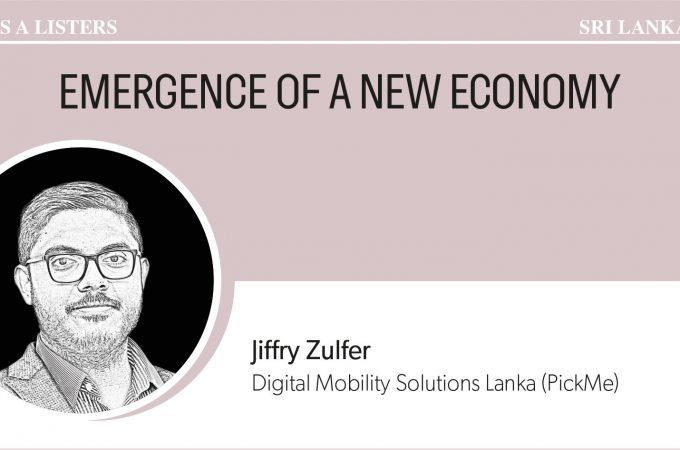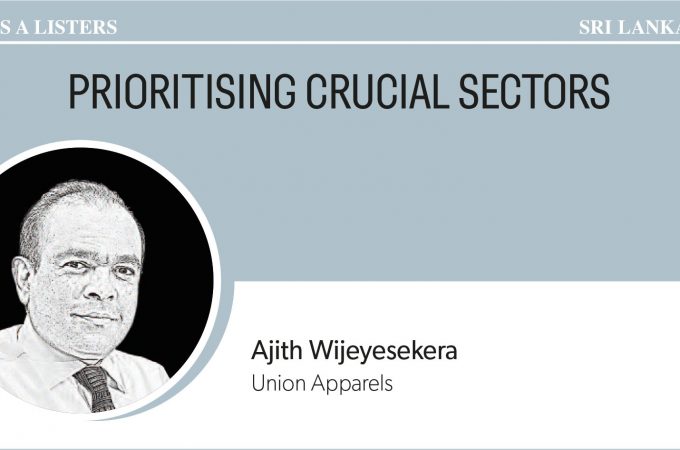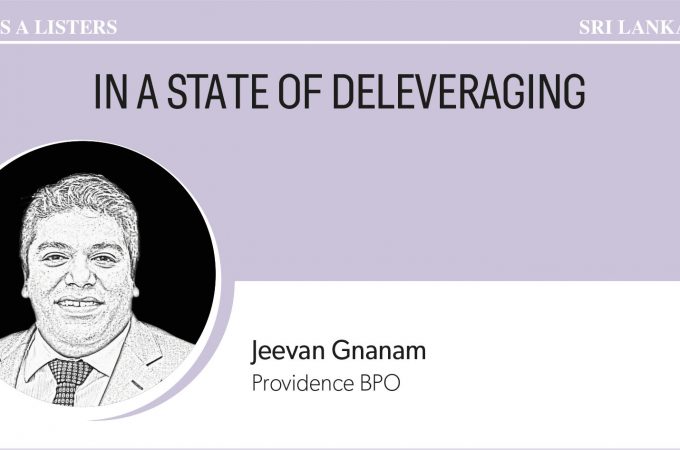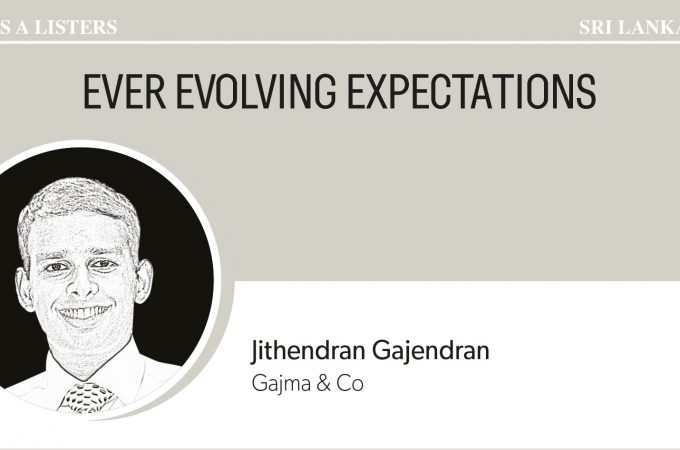LESSONS FROM THE COVID-19 PANDEMIC
Q:How do you view Sri Lanka’s COVID-19 response so far? What are the pros and cons?
A: In comparison to the responses of other developed countries around the world, in my opinion Sri Lanka has performed exceptionally in handling COVID-19. The early intervention and proactive actions have helped contain the spread of the virus, and keep it in clusters.
I believe we’re doing very well, and will do our best to come out of this strategically and methodically. The experienced healthcare workers, supported by the efforts of the forces and police, are working diligently.
This is an unprecedented situation the whole world must overcome; yet, Sri Lanka has done commendably. The coronavirus pandemic may very well serve as a turning point for Sri Lanka to become a clean country – meaning that we can learn from this to prevent future medical emergencies.
Q: What lessons have we – the business community – learnt from this crisis?
A: COVID-19 has made it abundantly clear to the business community that it did not have sufficient contingency plans and the capacity to operate during a pandemic. This is an eye-opener for companies to be more cautious and prudent in their future investments, savings and developments. The crisis has compelled businesses to think out of the box, and find new and innovative approached run their daily activities.
And since we are still in the middle of the crisis, there will be more lessons to learn as it unfolds. An overarching lesson for the public is that steps should be taken to create a more self-sufficient national economy, which relies on its own agriculture and cultivation rather than imports.
Q: How do you see the ‘new normal’ for business panning out?
A: As I mentioned earlier, businesses around the world have never faced such a phenomenon. I think the new normal for businesses will encompass change and the evolution of business trends.
There will be a greater emphasis on essential goods and protecting their supply for at least the next 12 months. We may see a boom in e-commerce as many would find this to be a safer option rather physically going out to purchase goods and services. I believe that everyone will have a different outlook; it’s hard to say at the moment but perhaps the trend will be to ‘wait and see’ in the short term at least.
ABOUT LMD’S A LISTERS
BOOST TO REAL ESTATE INVESTMENT
 Q: What are your expectations of the business environment in the next 12 months or so? A: With the reduction in interest rates and increase in money circulation, people have a greater tendency to invest in real estate over the money market amidst the pandemic. We have seen similar patterns even in developed markets such…
Q: What are your expectations of the business environment in the next 12 months or so? A: With the reduction in interest rates and increase in money circulation, people have a greater tendency to invest in real estate over the money market amidst the pandemic. We have seen similar patterns even in developed markets such…
EMERGENCE OF A NEW ECONOMY
 Q: How did the pandemic necessitate a digital economy? A: Countries were not prepared for the COVID-19 pandemic’s impact on the economy and people, but it has resulted in the emergence of a new economy and way of life. It is technology, and the spirit of humans to survive and push past boundaries that have…
Q: How did the pandemic necessitate a digital economy? A: Countries were not prepared for the COVID-19 pandemic’s impact on the economy and people, but it has resulted in the emergence of a new economy and way of life. It is technology, and the spirit of humans to survive and push past boundaries that have…
PRIORITISING CRUCIAL SECTORS
 Q: What are your expectations of the business environment in the next 12 months or so? A: I believe that business is not likely to pick up until at least mid-next year for the hospitality sector. Business was nonexistent and as a measure to prevent exorbitant losses, we converted our hotel into a quarantine centre…
Q: What are your expectations of the business environment in the next 12 months or so? A: I believe that business is not likely to pick up until at least mid-next year for the hospitality sector. Business was nonexistent and as a measure to prevent exorbitant losses, we converted our hotel into a quarantine centre…
A POSITIVE AND FLEXIBLE PATHWAY
RELIABLE PARTNERS IN A CRISIS
 Q: In brief, what are the main challenges confronting corporates at this time? A: I think corporates today are besieged with a plethora of problems caused by the prevailing situation. First and foremost is the challenge in keeping their workers safe from COVID-19, and flowing from that is the inability to keep production cycles running…
Q: In brief, what are the main challenges confronting corporates at this time? A: I think corporates today are besieged with a plethora of problems caused by the prevailing situation. First and foremost is the challenge in keeping their workers safe from COVID-19, and flowing from that is the inability to keep production cycles running…
IN A STATE OF DELEVERAGING
 Q: How do you perceive the economic climate at present? A: I would like to really think about the state that the country’s economy is in. Our debt repayments are much higher than our income and this puts Sri Lanka in a state of deleveraging. This recently manifested itself in a 14.2 percent increase in…
Q: How do you perceive the economic climate at present? A: I would like to really think about the state that the country’s economy is in. Our debt repayments are much higher than our income and this puts Sri Lanka in a state of deleveraging. This recently manifested itself in a 14.2 percent increase in…
EVER EVOLVING EXPECTATIONS
 Q: What modern-day challenges do businesses face? A: Information overload – in the new world we live in, there’s never a lack of information. About 2.5 quintillion data bytes are added every day; more data is created in a single day than the combined amount generated over 99 percent of human history. Previous generations of…
Q: What modern-day challenges do businesses face? A: Information overload – in the new world we live in, there’s never a lack of information. About 2.5 quintillion data bytes are added every day; more data is created in a single day than the combined amount generated over 99 percent of human history. Previous generations of…
EXPANDING CREDIT FACILITIES
 Q: What is the bank’s corporate strategy for 2021/22? A: DFCC Bank’s 2021/22 plan is based on our five year strategy for 2020-2025 with the aim of making it one of the most customer centric and digitally enabled banks by 2025. Our lending plans will align with the government’s budget proposals to facilitate the growth…
Q: What is the bank’s corporate strategy for 2021/22? A: DFCC Bank’s 2021/22 plan is based on our five year strategy for 2020-2025 with the aim of making it one of the most customer centric and digitally enabled banks by 2025. Our lending plans will align with the government’s budget proposals to facilitate the growth…
REMAINING IN THE SPOTLIGHT
 Q: What are Sri Lanka Tourism Development Authority’s (SLTDA) priorities for 2021/22? A: The global tourism industry will continue to experience a huge shift in the way of doing business. Our innovative bio-bubble concept launch in January was recognised at ITB Berlin. We hope this will boost traveller confidence. Therapeutic destinations and experiential travelling are…
Q: What are Sri Lanka Tourism Development Authority’s (SLTDA) priorities for 2021/22? A: The global tourism industry will continue to experience a huge shift in the way of doing business. Our innovative bio-bubble concept launch in January was recognised at ITB Berlin. We hope this will boost traveller confidence. Therapeutic destinations and experiential travelling are…






